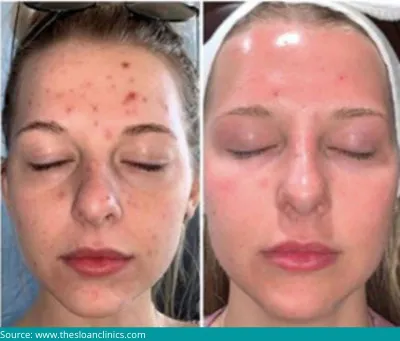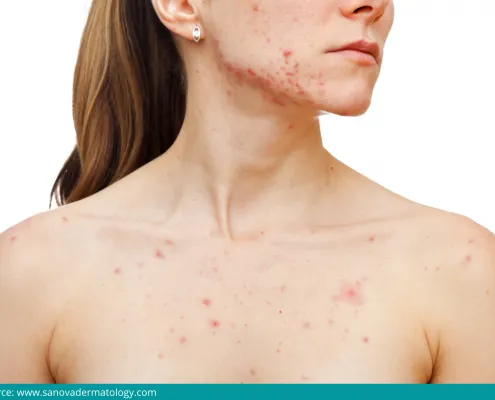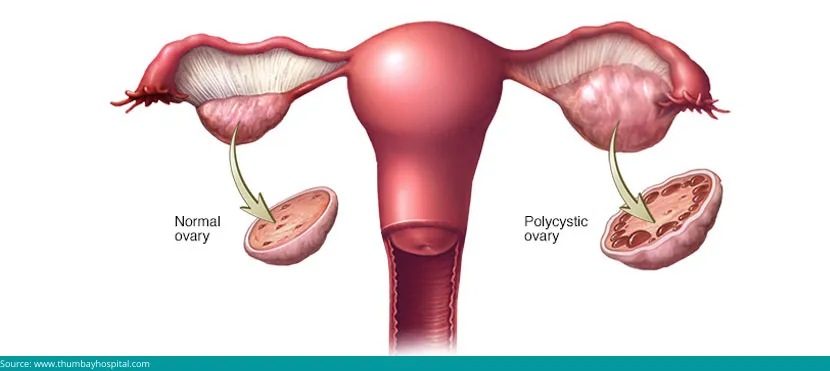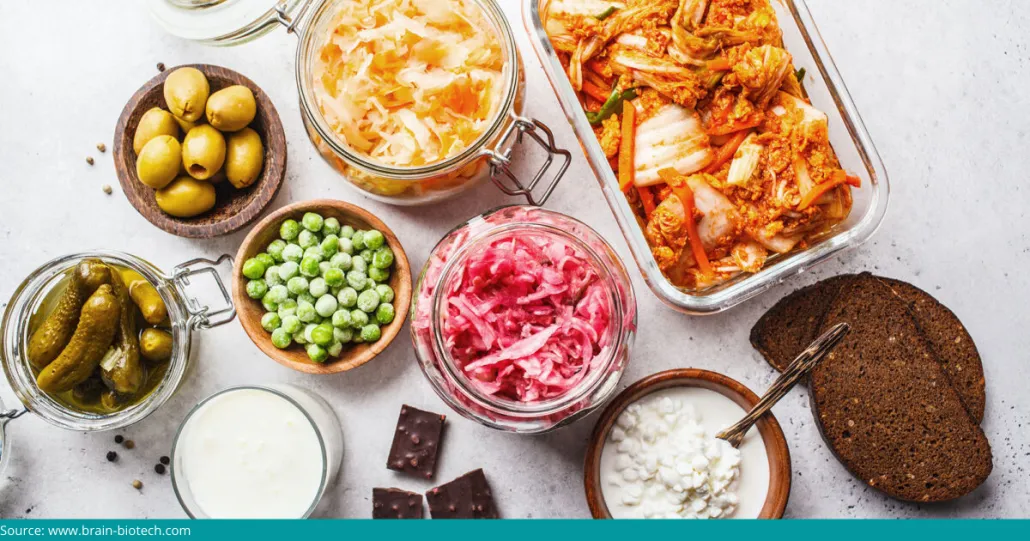Dealing with breakouts might become a daily event if you have PCOS. The hormonal imbalance that characterizes the illness is to blame for this, as it is for many other symptoms.
Controlling PCOS-related acne is not a one-size-fits-all solution. Because everyone’s skin is distinct, each treatment regimen will necessarily change. A holistic approach – combining lifestyle modifications, dietary changes, supplementation, and even medicine – may be beneficial.
Dr. Swetha P, a well-known skin specialist in Indiranagar, says that acne, like any other ailment, will improve over time with the proper therapies, as well as patience and understanding.
Read on to understand PCOS and how it is related to acne.
What is PCOS?
The majority of people confuse skin lightening therapy with skin whitening or fairness remedies. According to our dermatologist in Indiranagar, skin whitening treatment is a common fallacy.
The use of harmful chemicals to whiten the skin or change melanin production is dangerous. It is a common misunderstanding, and dermatologists completely rule out the risk of fading your skin to what it is naturally.
Again, many people think that a skin whitening treatment is a highly expensive one. But it is not true. You can avail our skin lightening treatment without thinking twice about the cost.
How is PCOS related to acne?
PCOS is caused by a hormonal imbalance. The illness causes an increase in testosterone and other ‘male hormones.’ These hormones drive the sebaceous gland — a tiny gland in your skin that produces lubricating oily substances – to produce excessive oil. In turn, the excessive oil clogs your pores and creates an environment for acne.
If you are dealing with acne, please do not delay getting it treated. Drop in at Dr. Swetha’s Cosmoderm Centre, a world-class hair and skin clinic in Indiranagar, for reliable and effective treatment options by Dr. Swetha P.
How is PCOS diagnosed?
A doctor must uncover at least two of the three concerns listed below in order to diagnose PCOS:
Hyperandrogenism
Hyperandrogenism, or excess androgen production, is a characteristic hallmark of PCOS. Your doctor will look for the following symptoms to identify it:
- hirsutism, or hair growth in regions where hair is normally absent
- acanthosis nigricans , dark thick patches on your skin
- acne
- thinning or losing hair on your scalp
Chronic anovulation
Anovulation that persists occurs when your ovaries do not release an egg cell during your menstrual cycle.
Adult women with PCOS may go through chronic anovulation where their menstrual cycle lasts longer than 35 days. In adolescents, chronic anovulation is when the menstrual cycle is more than 40 days.
Chronic anovulation may also cause infertility.
Polycystic ovaries
Polycystic ovaries are distinguished by two characteristics:
- enlarged ovaries
- the existence of numerous follicles (fluid-filled sacs) around your egg cells
A transvaginal ultrasound is required to determine whether or not you have polycystic ovaries.
What are the treatment options for PCOS-related acne?
While PCOS-related breakouts can affect your confidence, attitude, and overall well-being, there are various strategies to treat them. You will need to take a practical and holistic approach to the problem and address it from the inside out.
In order to do this, you will have to make some dietary and lifestyle changes.
Dietary changes
Avoid dairy products
The majority of empirical evidence suggests that dairy consumption worsens acne. When we digest proteins contained in milk, we produce an insulin-like hormone called IGF-1. This hormone is well-known for causing acne. Furthermore, the hormones found in milk can combine with your hormones, confusing the endocrine system and resulting in acne.
The eminent dermatologist Dr. Swetha P says that although acne is not usually caused by consuming dairy products, it is worth testing to see whether it is making your skin worse. Try restricting your dairy intake for a month to see how it affects you. It is also a good idea to maintain a food-acne diary.
Go on a low GI (glycemic index) diet
Greasy fries and chocolate have long been associated with acne. It is now commonly accepted that foods with a high GI (the rate at which carbohydrate is broken down by your body for energy) raise your blood sugar levels and induce inflammation, leading to acne breakouts.
Include low-GI foods such as quinoa, brown rice, chickpeas, rolled oats, lentils, and sprouted grain bread in your diet. Limit your intake of high-GI items such as white rice, white bread, biscuits, and pastries.
Take care of your gut
Increasing evidence suggests that a leaky gut may cause pimples, with data indicating higher gut permeability in acne-prone people. Proteins are stacked in your gut and are closely woven together at specific locations. If the bond between the proteins becomes loose and weak, your gut gets exposed to external chemicals like acne-causing toxins.
Various studies have proven that probiotic foods are a viable treatment for chronic pimples because they enhance gut health. Fermented foods, such as yogurt, kefir, sauerkraut, miso, kombucha, and kimchi, are high in beneficial bacteria that improve intestinal health. Along with this, eat a lot of fiber-rich meals. Vegetables, fruits, beans, legumes, and whole grains are all excellent sources of fiber and nutrients for your gut bacteria.
Lifestyle changes
Relax
Stress is another pressure that we have to deal with as a result of the fast pace of modern life. However, this emotional plague affects every aspect of your health, including your skin. Stress can damage and inflame your skin in various ways, including eczema, psoriasis, seborrheic dermatitis, and acne. There is no denying that our psyche and the skin are inextricably linked.
Stress management necessitates a diverse strategy. You might want to attempt meditation, deep breathing exercises, or journaling in addition to getting the required 7 to 9 hours of sleep daily and exercising 3 to 4 times each week. Remember that there is no single approach for reducing stress; you must find what works best for you.
Please speak with Dr. Swetha P, one of the best skin specialists in Indiranagar, to find out what supplements and OTC (over-the-counter) products you can use for PCOS-related acne.
Following are some tips to reduce your chances of getting acne:
- Drink a minimum of 8-10 glasses of water daily to stay hydrated.
- Wash your makeup applicators and brushes after each use.
- You can apply tea tree oil on your breakouts at night.
- Use a gel-based cleanser twice a day.
- Exfoliate and apply a face mask once or twice a week.
- Use products containing salicylic acid, glycolic acid, or benzoyl peroxide.
- Apply a 30 SPF sunscreen even in winter and on cloudy days.
- Use a moisturizer during the day as well as at night.
- Wash your face after a workout.
Conclusion

Although living with PCOS and acne can be difficult and emotionally draining, rest assured that with the proper treatment, you can control them. But remember, the longer you wait, the more damage it can cause your skin.
Schedule an appointment with Dr. Swetha P at the earliest. Among the leading skin specialists in Bangalore, she can provide you with safe, cost-effective, and reliable treatment.






